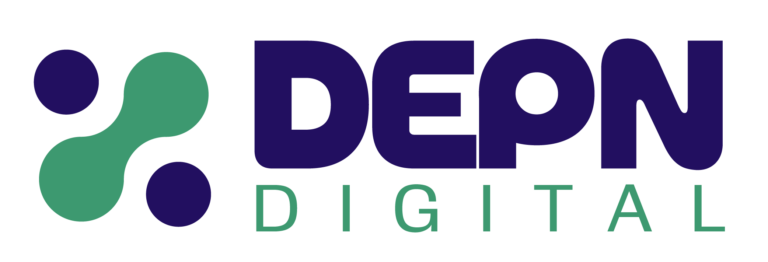
Search Engine Optimization (SEO) is a fundamental part of digital marketing. It’s the process of optimizing your website to rank higher in search engine results pages (SERPs), ultimately driving more organic traffic to your site. This guide will walk you through the essentials of SEO, from understanding how search engines work to advanced strategies for boosting your website’s visibility.
What is SEO?
SEO stands for Search Engine Optimization. It involves a range of techniques used to enhance a website’s position on search engines like Google, Bing, and Yahoo. The goal is to attract organic (non-paid) traffic to your site by optimizing various elements like content, structure, and technical performance.
Learn more about the basics of SEO from Moz’s Beginner’s Guide to SEO.
Key Elements of SEO
SEO consists of several components that work together to improve your website’s visibility. Below are the key elements of SEO:
On-Page SEO
On-page SEO refers to the practices you apply to individual pages on your website to improve their rankings. This includes optimizing the content, title tags, meta descriptions, headings, and URL structure.
For a comprehensive on-page SEO checklist, check out Neil Patel’s On-Page SEO Guide.
Off-Page SEO
Off-page SEO involves activities that occur outside of your website but still affect its ranking. This mainly includes link building, where backlinks from other high-authority websites can help improve your site’s credibility.
Learn more about off-page SEO at Search Engine Journal.
Technical SEO
Technical SEO focuses on the backend structure of your website, such as page speed, mobile-friendliness, crawlability, and secure connections (HTTPS). A well-optimized technical foundation ensures that search engines can efficiently index and rank your site.
Check out Google’s Technical SEO Starter Guide.
Content SEO
High-quality content is crucial for SEO success. Search engines prioritize relevant, engaging, and original content that addresses users’ search queries.
Learn more about creating SEO-friendly content from Yoast’s Guide to Content SEO.
Local SEO
Local SEO focuses on optimizing your website to rank higher for searches with local intent. This is especially important for businesses with physical locations.
For more about local SEO, visit Moz’s Local SEO Guide.
How Search Engines Work
Search engines use complex algorithms to determine which web pages should rank for specific search queries. These algorithms consider various factors, such as relevance, quality, and user experience. Google, the most widely used search engine, regularly updates its algorithms to provide users with the best possible results.
Learn how search engines work in detail by reading Google Search Central’s Overview.
SEO as a Cost-Effective Advertising Strategy
One of the principal decisions that startup owners have to make is whether or not to engage in SEO. A common consideration is the cost of investing in an SEO campaign versus potential returns. SEO is less expensive than other online marketing approaches and offers higher reward rates when compared to techniques such as social media marketing, pay-per-click advertising, and email marketing. While the initial SEO investment may be substantial—covering website design, programming, and strategizing—it delivers long-term and scalable benefits.
Increased Visibility and Customer Awareness
Implementing SEO strategies helps you rank higher on the search engine’s results page (SERP). When your target customers search for products and services relevant to your industry, they are more likely to find your website. Consistently appearing on the SERP increases awareness of your business, leading to higher chances of attracting potential customers.
Off-Site SEO Benefits
Off-site SEO ensures that users from external pages or social media platforms can find your website. Optimizing for SEO expands your site’s reach beyond just search engines. For example, posting content and links to your page on platforms like Facebook or Twitter can drive additional traffic. A core goal of SEO is to attract a targeted audience through organic searches, ultimately boosting sales and subscriptions.
Data-Driven Insights with SEO Tools
SEO-related tools such as Google Keyword Planner and Google Analytics provide valuable quantitative data. These tools help businesses understand market trends, analyze competitor performance, and refine their strategies. Insights such as keyword popularity, user demographics, search behaviors, and product preferences enable businesses to tailor their content to better meet audience needs.
Keyword Research
Keyword research is the foundation of effective SEO. By identifying the right keywords for your target audience, you can optimize your content to rank for the terms users are searching for. Tools like Google Keyword Planner, Ahrefs, and SEMrush can help with keyword research.
Check out Ahrefs’ Guide to Keyword Research for a deeper understanding.
Link Building
Backlinks are one of the most important ranking factors in SEO. When a high-authority website links to your page, it signals to search engines that your content is valuable and trustworthy. Link-building strategies include guest blogging, influencer outreach, and content marketing.
Learn more about effective link-building techniques at Backlinko’s Link Building Guide.
SEO Analytics
Monitoring your SEO performance is essential to improving your strategies over time. Tools like Google Analytics and Google Search Console help track traffic, user behavior, and keyword performance. Regularly reviewing this data can guide your future SEO efforts.
Get started with SEO analytics by reading Google Analytics for Beginners.
The Importance of Mobile Optimization
With the increasing use of mobile devices, optimizing your website for mobile users is crucial. Google uses mobile-first indexing, which means that it primarily uses the mobile version of your site to determine rankings. Ensure that your website is responsive and loads quickly on mobile devices.
Learn more about mobile optimization at Google’s Mobile SEO Guide.
SEO Trends to Watch in 2024
SEO is constantly evolving, and staying up to date with the latest trends is essential. In 2024, some key trends include:
- Artificial intelligence (AI) and machine learning in SEO.
- Voice search optimization.
- Video SEO.
- E-A-T (Expertise, Authoritativeness, and Trustworthiness) content.
For more on upcoming SEO trends, visit Search Engine Watch.
Common SEO Mistakes to Avoid
SEO can be complex, and mistakes can easily be made. Some common errors include keyword stuffing, using duplicate content, ignoring mobile optimization, and not utilizing meta tags properly.
Avoid these mistakes by reading Yoast’s Guide on SEO Mistakes.
Conclusion
Mastering SEO requires a combination of strategy, patience, and constant learning. By optimizing your website for search engines, you can attract more organic traffic and improve your online visibility.
For a more comprehensive overview of SEO, visit SEO 101 at HubSpot.


